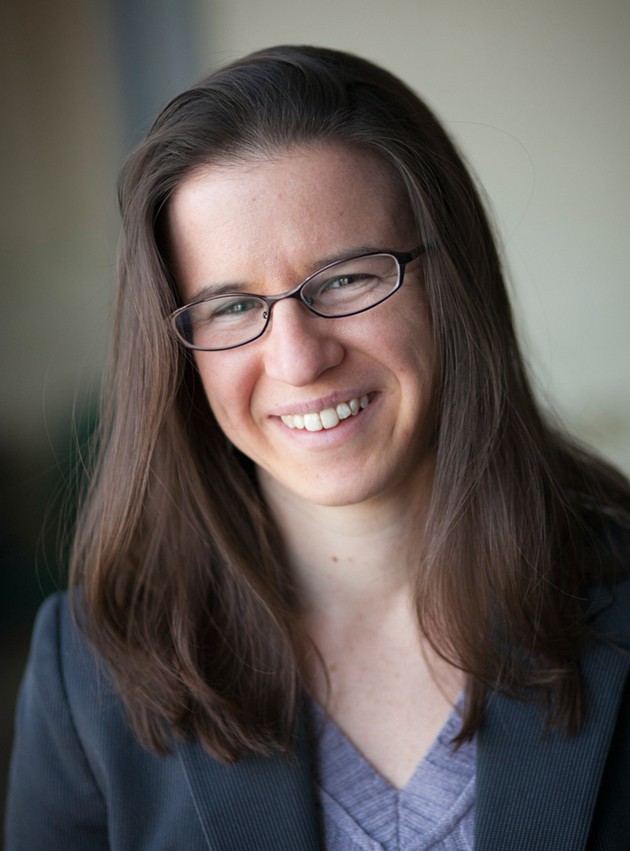Silberstein wins DOE grant to study polymer membranes
By Tom Fleischman
Meredith Silberstein, assistant professor in the Sibley School of Mechanical and Aerospace Engineering, is one of 84 scientists chosen by the U.S. Department of Energy to receive funding as part of the DOE Office of Science’s Early Career Research Program.
Silberstein, the Mills Family Faculty Fellow, will use her funding – $750,000 over five years – to pursue her study of the fundamental physical mechanisms for self-regulation of synthetic polymers and gels under electric fields.
“I’m really excited to pursue this fundamental research into the direct modulation of polymer membranes’ mechanical properties with electric fields,” she said, noting that the work was inspired by the role of local electric fields in dynamic modification of biological membranes.
Silberstein, who received a National Science Foundation Faculty Early Career Development Program award in 2017, hopes to design polymer membranes that behave much like biological membranes, which she says are constantly assessing “operating” conditions and optimizing their function by adjusting their properties.
This research, which will employ computational simulation, theoretical modeling, synthesis, and experiments, is enabled by emerging approaches for tailoring polymers through controlling the mechanical strength of certain molecular bonds.
“In the long term,” she said, “we expect that our work will lead to the design of membranes that respond productively – for instance, by strengthening or healing – to the dynamically varying electrical field environments inherent to batteries and fuel cells.”
Silberstein, who joined the Cornell faculty in 2013, received her bachelor’s (2005), master’s (2008) and Ph.D. (2011) from the Massachusetts Institute of Technology. Her research interests include material design and continuum mechanics.
This work addresses two of the DOE’s key initiatives: the Biomolecular Materials Core Research Area, calling for discovery, design and synthesis of bioinspired functional materials; and its Basic Research Need, optimizing functionality of materials to enable holistic design for energy storage.
The DOE early career program, in its ninth year, is designed to bolster the nation’s scientific workforce by providing support to exceptional researchers during the crucial early career years, when many scientists do their most formative work.
Fifty-four scientists from university-based labs will receive grants of at least $150,000 a year for five years. Another 30 scientists from the DOE’s national laboratories will receive five-year grants of at least $500,000 per year.
Media Contact
Get Cornell news delivered right to your inbox.
Subscribe

